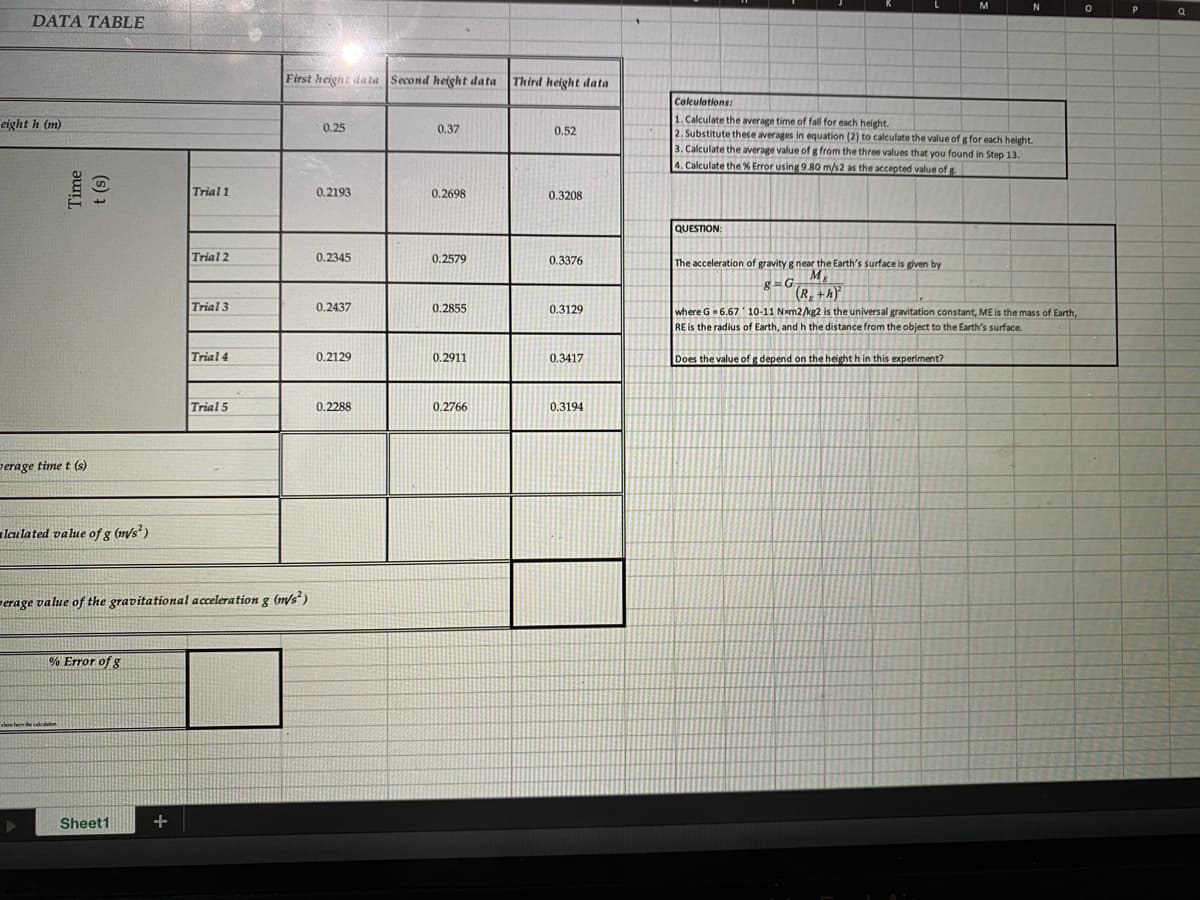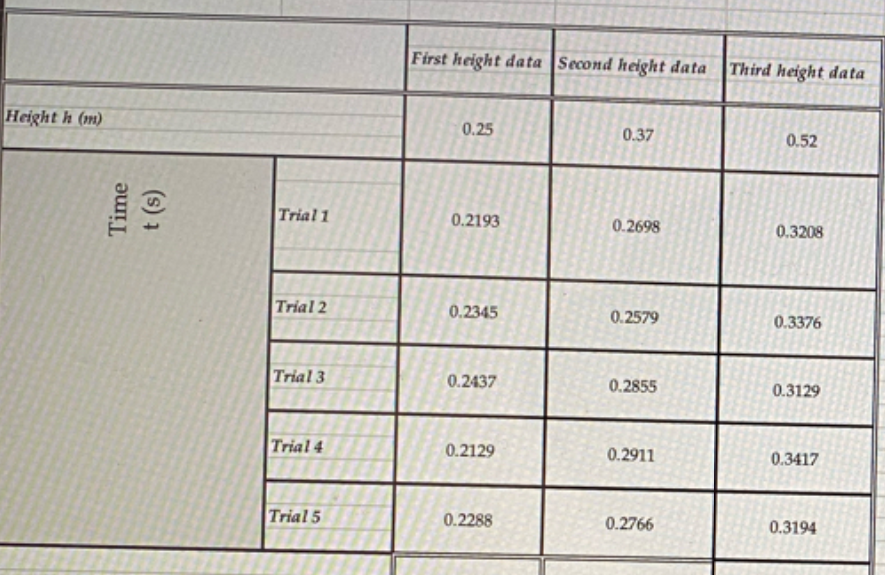Caleulations: 1. Calculate the average time of fall for each height. 2. Substitute these averages in equation (2) to calculate the value of g for each height. 3. Calculate the average value of g from the three values that you found in Step 13. 4. Calculate the % Error using 9.80 m/s2 as the accepted value of g
Caleulations: 1. Calculate the average time of fall for each height. 2. Substitute these averages in equation (2) to calculate the value of g for each height. 3. Calculate the average value of g from the three values that you found in Step 13. 4. Calculate the % Error using 9.80 m/s2 as the accepted value of g
Glencoe Physics: Principles and Problems, Student Edition
1st Edition
ISBN:9780078807213
Author:Paul W. Zitzewitz
Publisher:Paul W. Zitzewitz
Chapter1: A Physics Toolkit
Section: Chapter Questions
Problem 68A
Related questions
Question

Transcribed Image Text:DATA TABLE
First height data Second height data
Third height data
Calculations:
1. Calculate the average time of fall for each height.
2. Substitute these averages in equation (2) to calculate the value of g for each height.
3. Calculate the average value of g from the three values that you found in Step 13.
eight h (m)
0.25
0.37
0.52
4. Calculate the % Error using 9.80 m/s2 as the accepted value of g.
Trial 1
0.2193
0.2698
0.3208
QUESTION:
Trial 2
0.2345
0.2579
0.3376
The acceleration of gravity g near the Earth's surface is given by
M
g=G
R. +h
Trial 3
0.2437
0.2855
0.3129
where G- 6.67 10-11 Nxm2/kg2 is the universal gravitation constant, ME is the mass of Earth,
RE is the radius of Earth, and h the distance from the object to the Earth's surface.
Trial 4
0.2129
0.2911
0.3417
Does the value of g depend on the height h in this experiment?
Trial 5
0.2288
0.2766
0.3194
perage time t (s)
laulated value of g (m/s?)
Perage value of the gravitational acceleration g (m/s²)
% Error of g
shw here te aldatn
Sheet1
+
Time
(s) 1
Expert Solution
Step 1
Given information:

Step by step
Solved in 5 steps with 6 images

Knowledge Booster
Learn more about
Need a deep-dive on the concept behind this application? Look no further. Learn more about this topic, physics and related others by exploring similar questions and additional content below.Recommended textbooks for you

Glencoe Physics: Principles and Problems, Student…
Physics
ISBN:
9780078807213
Author:
Paul W. Zitzewitz
Publisher:
Glencoe/McGraw-Hill

College Physics
Physics
ISBN:
9781285737027
Author:
Raymond A. Serway, Chris Vuille
Publisher:
Cengage Learning


Glencoe Physics: Principles and Problems, Student…
Physics
ISBN:
9780078807213
Author:
Paul W. Zitzewitz
Publisher:
Glencoe/McGraw-Hill

College Physics
Physics
ISBN:
9781285737027
Author:
Raymond A. Serway, Chris Vuille
Publisher:
Cengage Learning


College Physics
Physics
ISBN:
9781938168000
Author:
Paul Peter Urone, Roger Hinrichs
Publisher:
OpenStax College